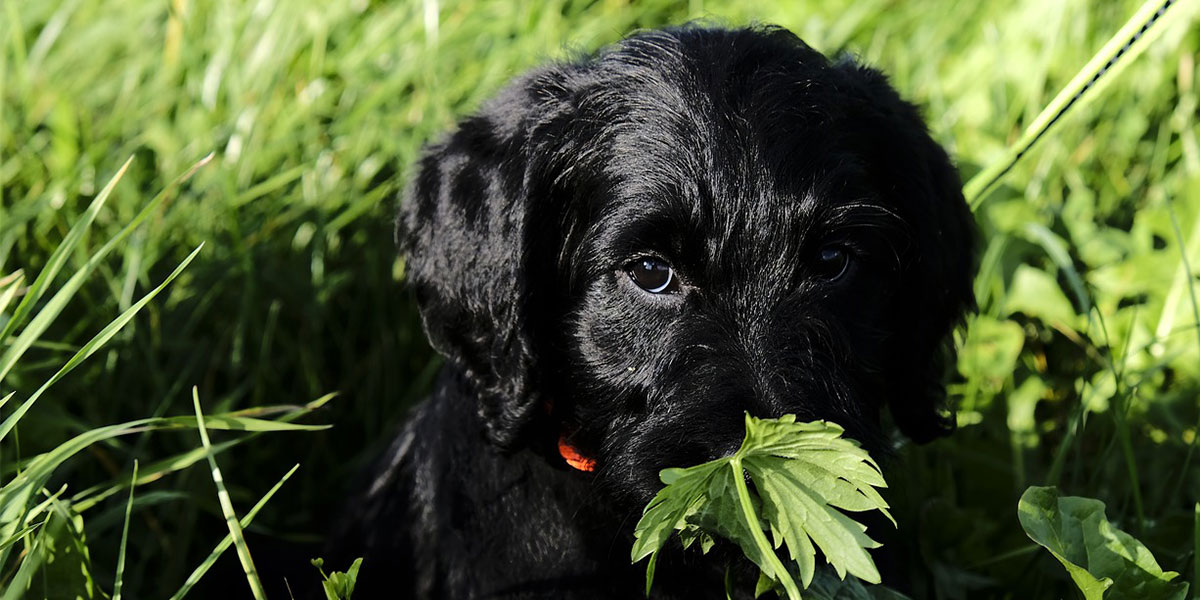Spending time apart can be difficult for both humans and canines. Puppies have to learn that their alone time won’t last forever, and that eventually you’ll be home again and ready to play.
As a Doodle parent, it’s your job to help your new pup adjust. Here’s how to make the process go as smoothly as possible.
Your Puppy Thinks That You’re Leaving Forever
Dogs love spending time with their families, and being alone is the epitome of boredom for your pooch. When your puppy is bored or anxious, he or she will express themselves in a number of ways like:
- Barking, whining or howling
- Chewing or digging
- Panting, drooling or trembling
- Escape attempts
- Biting or scratching themselves
- Eating less (or more)
- Constantly following you when you’re home
- Breaking house training
- Digestive problems
As you can see, these behaviors can range from minor to pretty severe, with some dogs even injuring themselves or getting stuck when attempting to escape your home.
So what can you do to help lower your pooch’s stress levels when you leave?
How to De-Stress Your Pup
Thankfully, there’s a lot you can do to help your puppy feel more relaxed when you leave home:
- Practice leaving your puppy alone for a bit while you’re still home, so that they’ll learn that a little alone time really isn’t a big deal.
- For dogs that get anxious as soon as your prepare to leave home, they could be associating your behaviors with the act of being alone. For example, jingling your car keys, putting on your shoes or turning off the TV may be triggers for your dog to signal that “alone time” is about to begin. Try breaking up your routine a bit by doing the same behaviors when you’re not planning on leaving, and your dog won’t associate them with negative emotions.
- It might sound weird, but pay less attention to your dog for 20-30 minutes before you leave. While you’re fussing with your dog, you’re actually increasing their anxiety levels. Try similar behavior after returning home.
- Begin crate training your dog as soon as possible. Your dog’s crate should be a safe space where your puppy feels secure, and when done right, crate training can help your puppy relax while you’re away.
- Try leaving the TV or radio on at a low volume when you’re not home.
- Try starting your puppy on organic CBD oil, which has been shown to help manage separation anxiety in dogs.
- Talk to your vet if your dog’s separation anxiety just refuses to go away.
It’s normal for puppies to be scared when they’re forced to spend time away from their owners, but managing that fear is easier than you think. Be patient, stick to your plan, and soon enough your puppy will be well-adjusted and calm when you prepare for work in the morning.
Of course, if you’re still looking for that perfect puppy, our puppy finder has you covered!
